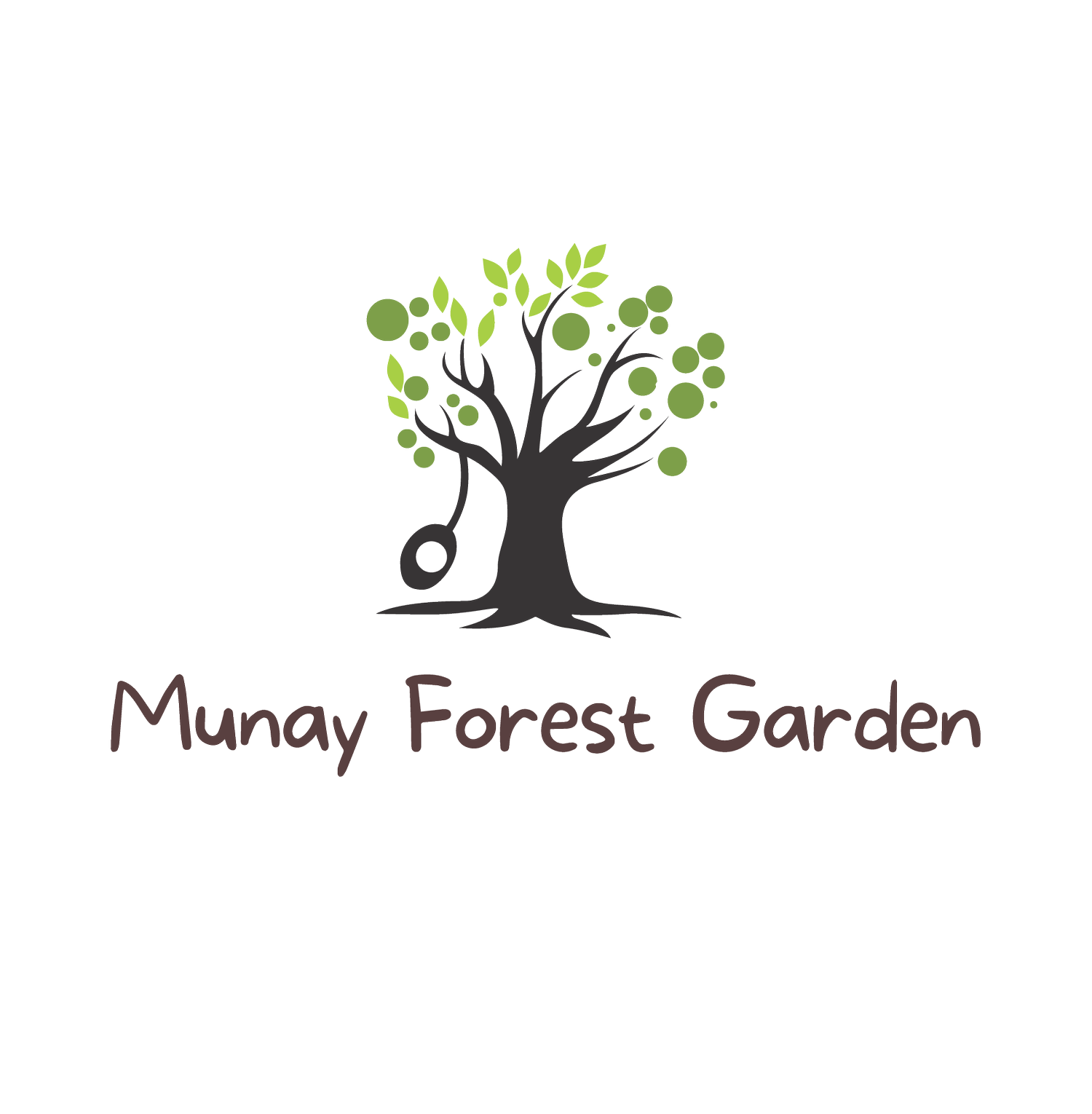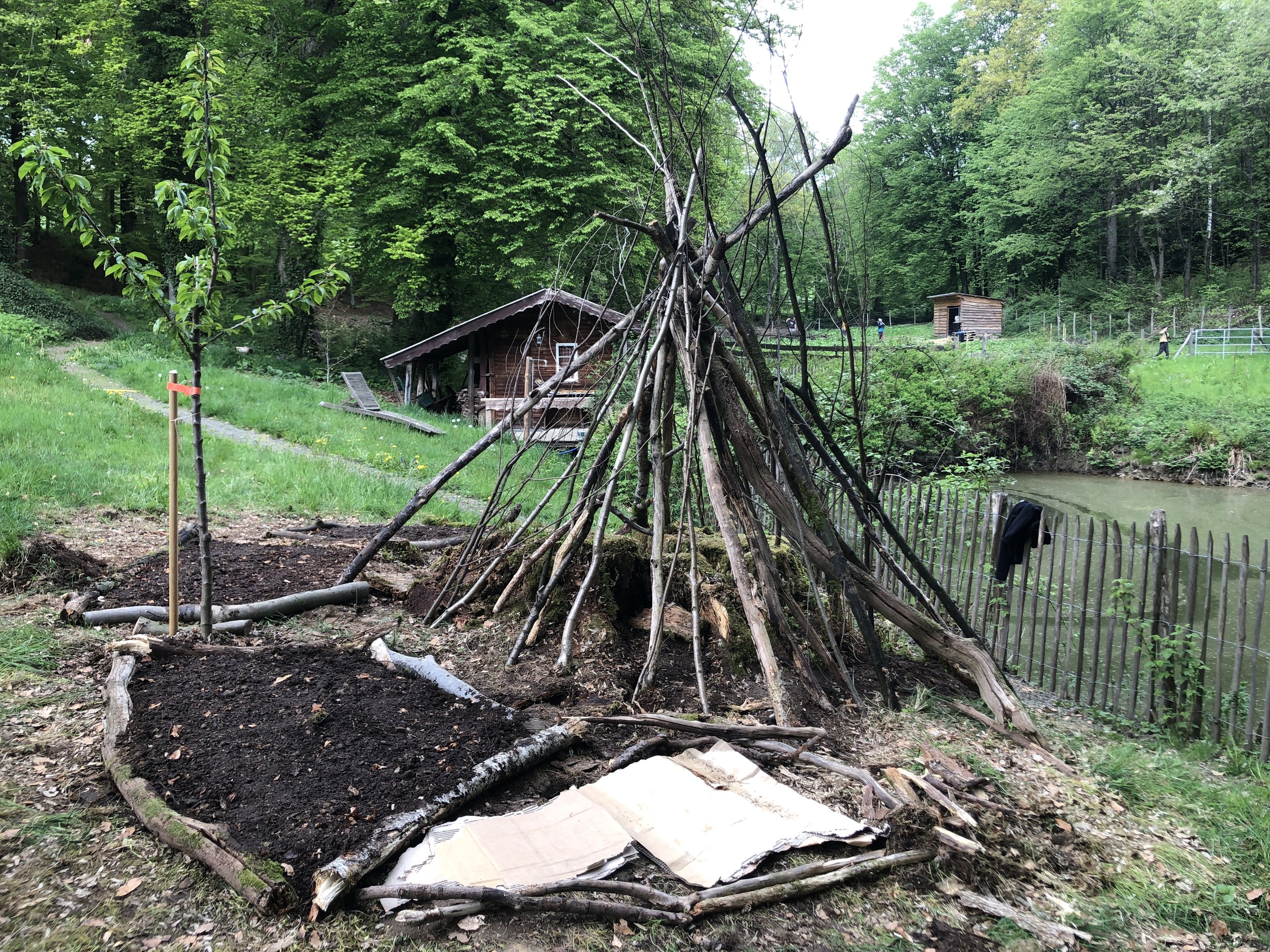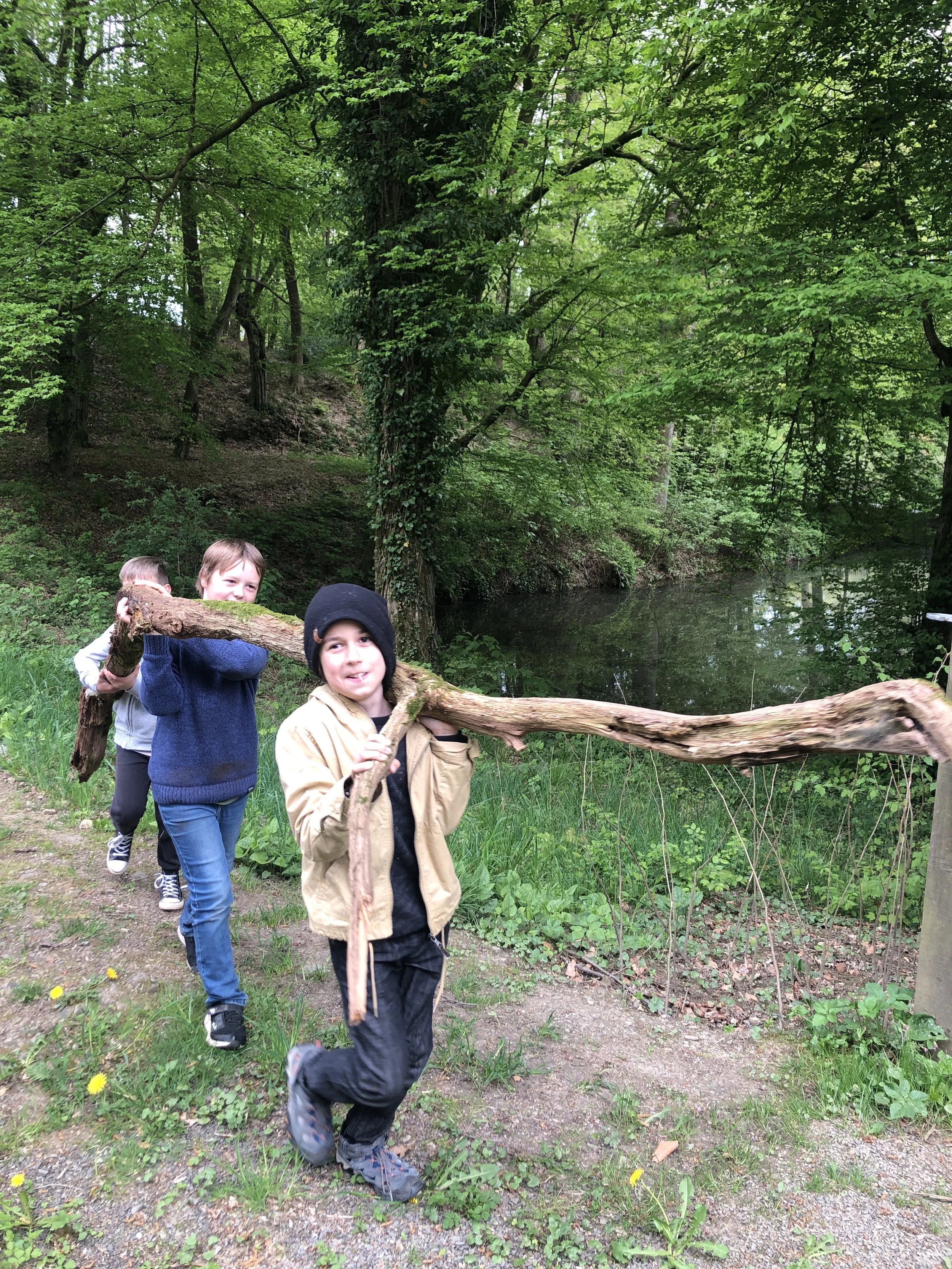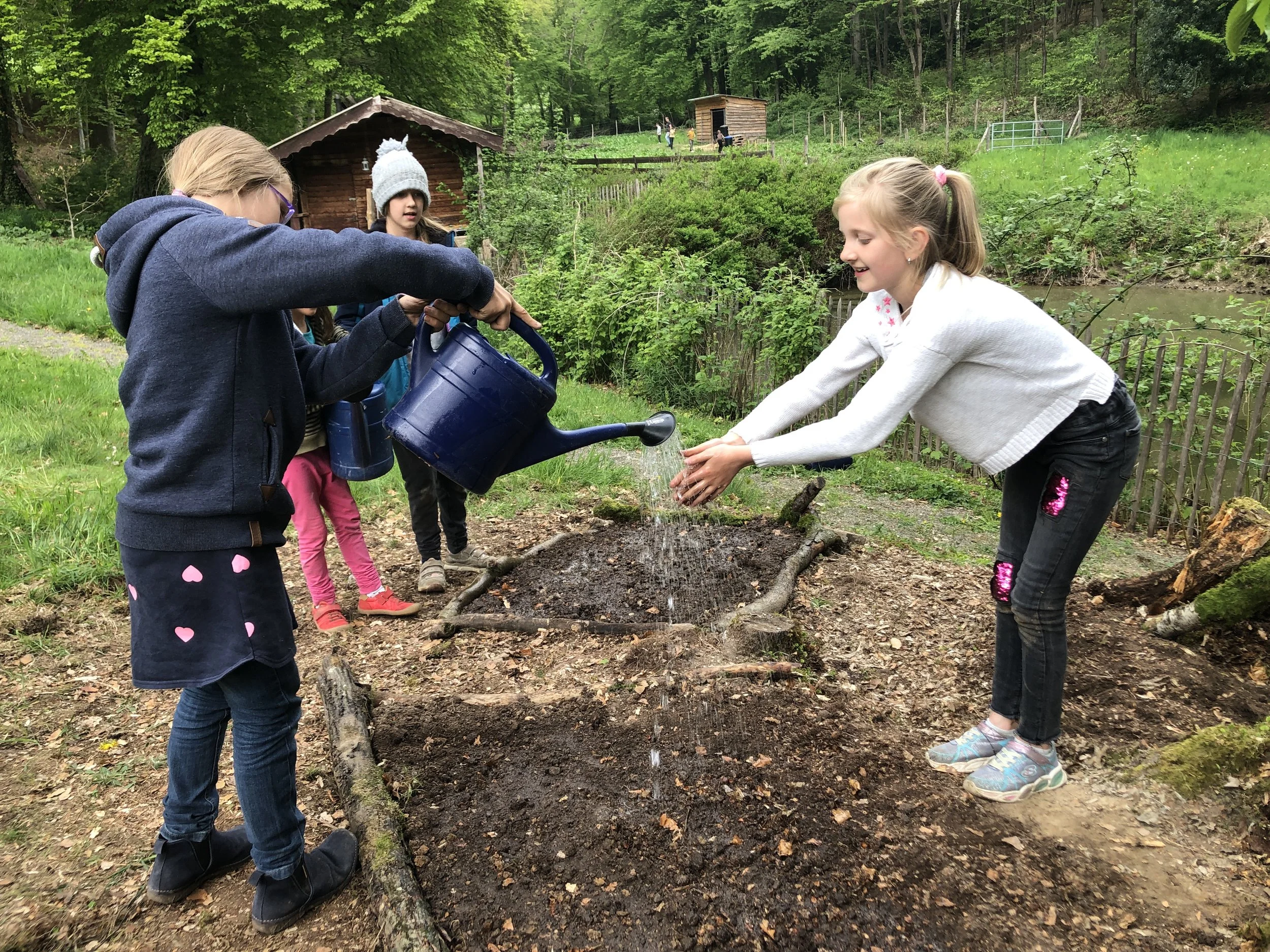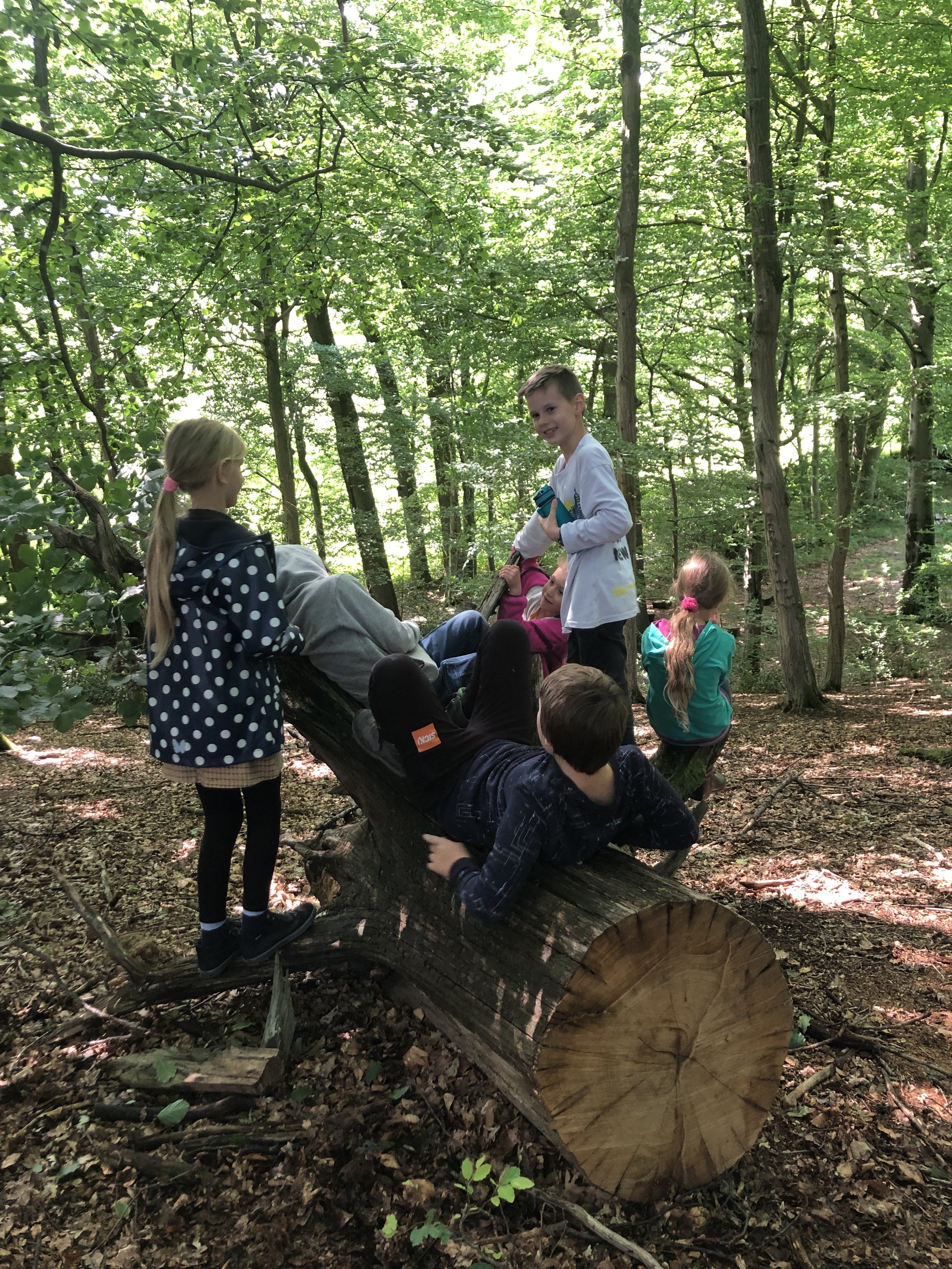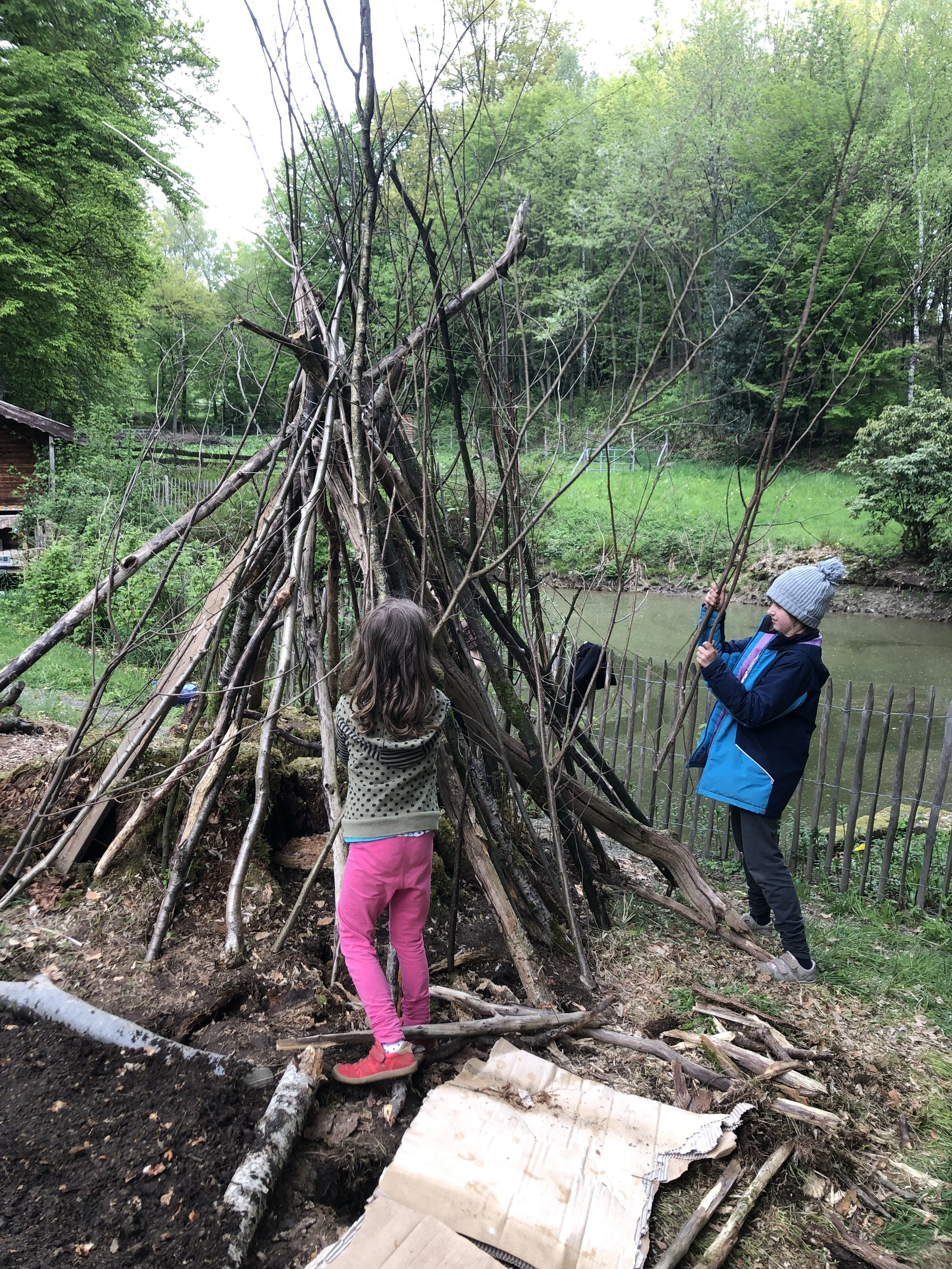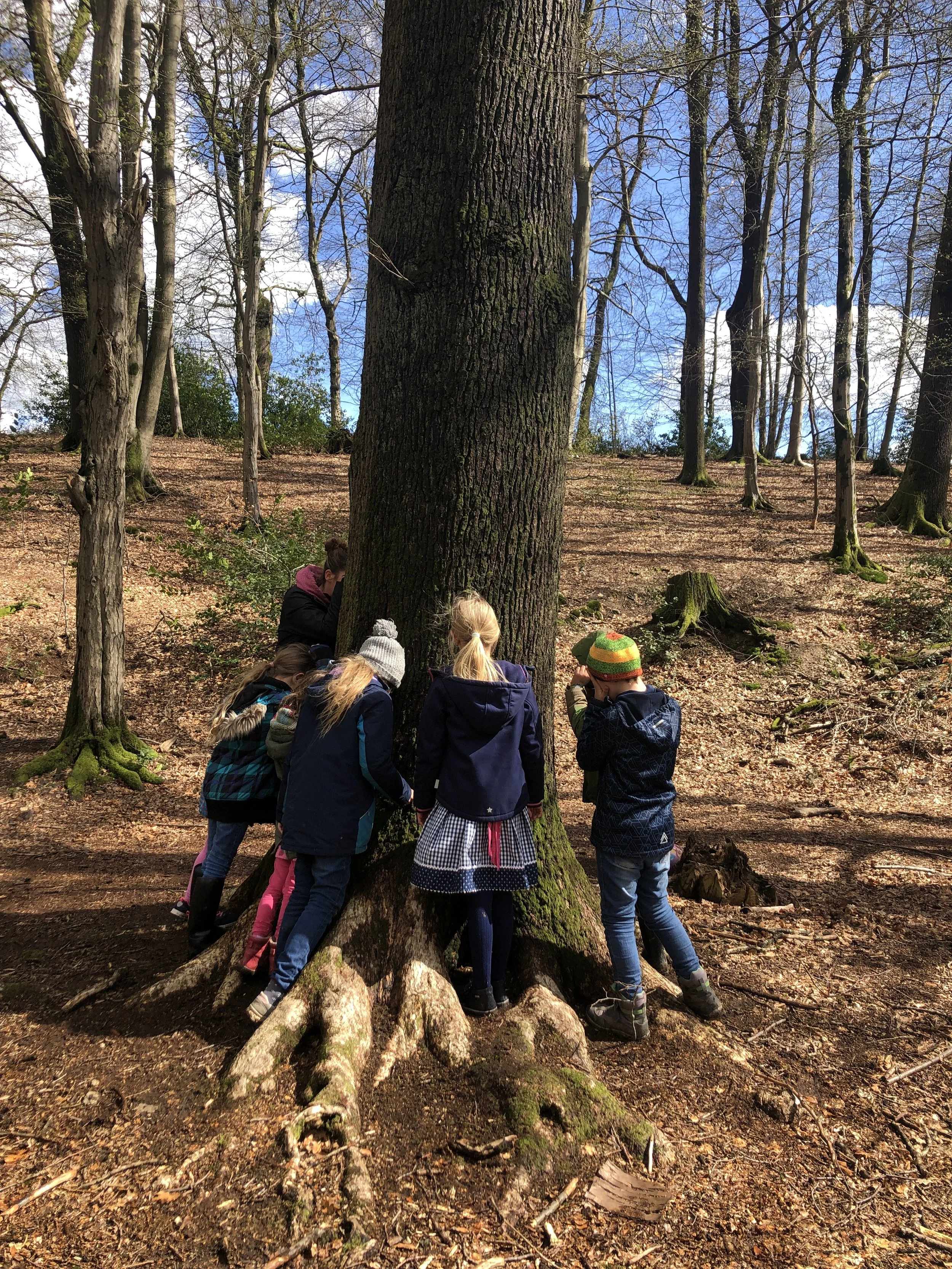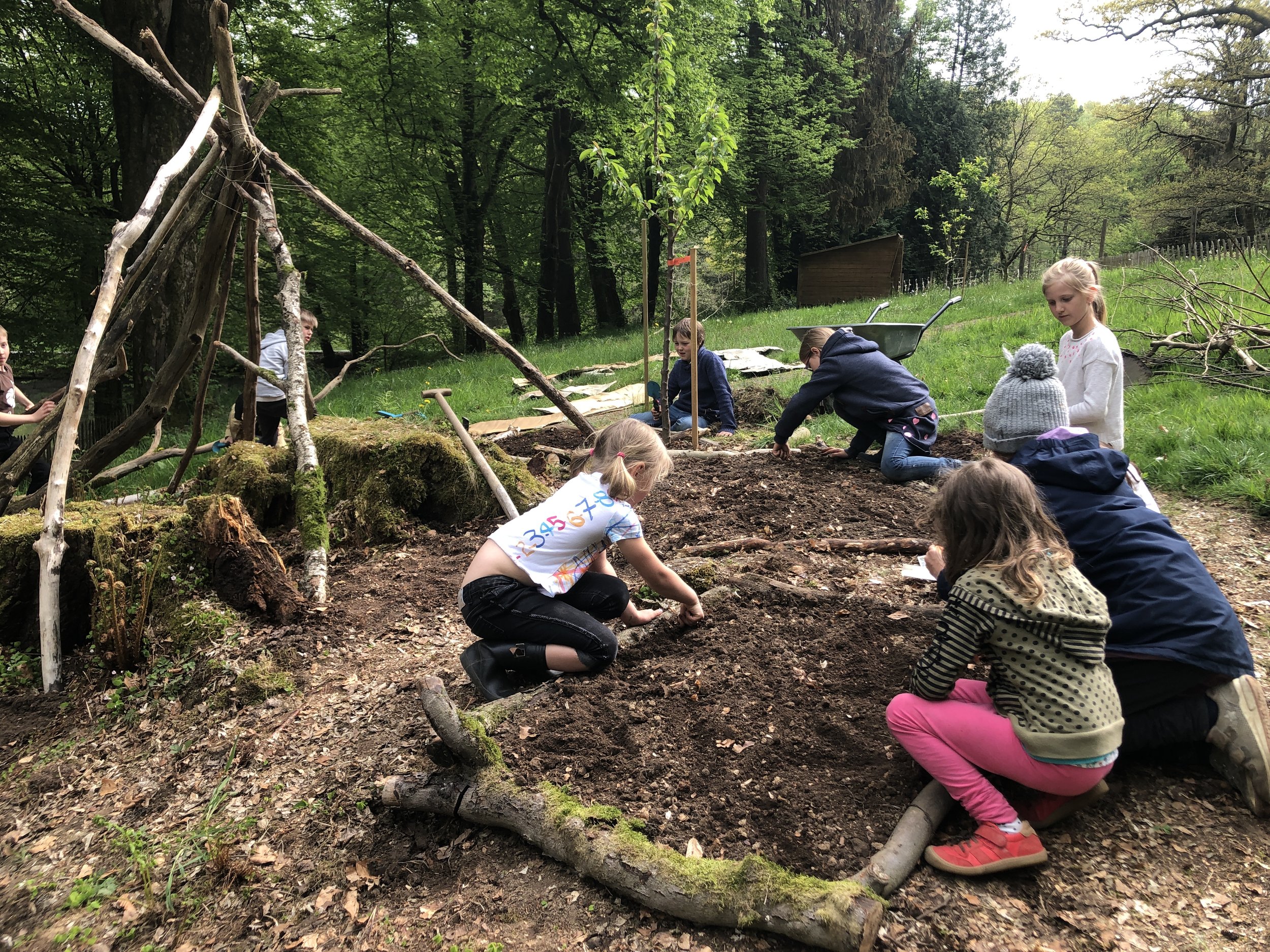
permaculture kids
We first allow children to love the earth, then we can ask them to save it.
the three ethics of permaculture:
-
EARTH CARE
In all our activities, we try to work in harmony with nature. Therefore, we need to understand how we can minimise our impact on the environment. Caring for the earth also means being mindful about how much is taken from nature, and the effect on the ecosystem of removing that item. Therefore, we are careful about how one treats the forest, by leaving no trace behind and by caring for the plants and other living beings
-
PEOPLE CARE
During the workshops, we take care of each other and of ourself, thus addressing the needs of children, parents, guides and other people of the community and the neighbourhood. We also take care of each other’s health and we make room for creativity, or anything else which arises at the moment. We create a safe place for everyone and we make sure that everybody is heard.
-
FAIR SHARE
Fair Share is about striving towards equality between people regardless of skin colour, gender, country of residence, etc. and seeking equity between humans and other species. Fair share also means “sharing the surplus” of the abundance of nature and taking only what is needed. The surplus can be the food harvested from the garden, human energy, time etc. which can be redistributed to benefit other living beings.
Working with rather than against nature
Through play and experimentation, children learn how nature works.
What can you see, smell, hear, taste and/or feel? What has changed since the last time we were here? Let’s look more closely.
Where is it sunny or shady, wet or dry, windy or sheltered, fertile or infertile?
How can we save energy? How can we catch the rain, sun or wind?
It all begins with curiosity.
@Children in Permaculture (Alterslowe, L. et al. 2018: 29-32)
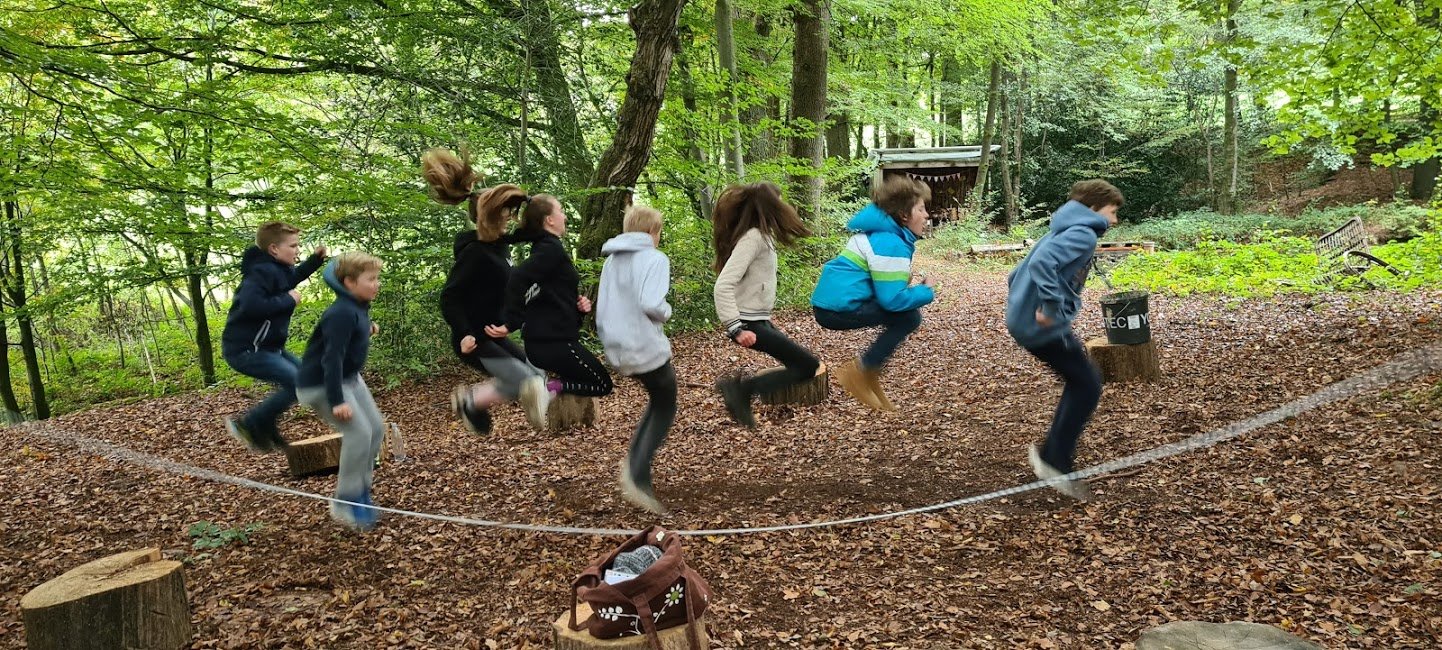
Introduce your brand
By the time children become adults, permaculture is no longer A subject but is part of their everyday practices and is as natural as breathing.
FAQs
-
Permaculture is a term coined from “permanent agriculture”, developed in the 1970s by two Australians (Bill Mollison & David Holmgren).
Permaculture is about working with nature, based on deep observation and understanding the principles which underpin natural systems. Central to permaculture are the three principles: earth care, people care and fair share.
-
At Munay Forest Garden, we want to help people to spend more time in nature. “Permaculture enriches these practices by providing a complete set of ethics, principles and design tools which can enable people to live in harmony with the earth, each other and other species, taking only a fair share to meet their needs” (Alderslowe, L. et al. 2018: 12).
Today, we urgently need a change of consciousness in order to protect the soil of our Mother Earth. If we start from an early age to minimise our impact on the environment, we are convinced that a sustainable agricultural food system is possible.
In all our activities at Munay Forest Garden, we inspire people to develop a compassionate and cooperative relationship with nature. Therefore, the permaculture ethics and principles will be interwoven in our planning and design of our activities.
-
Childhood is the ideal time to get to know nature, and how nature works, through play and experimentation. We believe that teaching children permaculture is important to the sustainability of life itself and is necessary to be taught to the children today, so that by the time they become adults, permaculture is no longer a subject but is part of their everyday practices and is as natural as breathing. “Doing permaculture with children supports them in learning to value resources and find creative ways to live in harmony wit the world” (Alderslowe, L. et al. 2018: 10).
At Munay Forest Garden, we want to support our children to become more conscious about their relationship with nature. Playing outside or spending time in the forest has also tremendous effects on their health: it increases their physical well-being, concentration, confidence and reduces stress. Children also feel happier as a result of their time outdoors.
From the child’s viewpoint, introducing permaculture to their lifeworld, is just fun! It is exciting, fascinating and motivating!
-
In Munay Forest Garden, we link the the practice of speaking a foreign language with the importance of living in harmony with nature.
We learn vocabulary that is useful in our daily life: for example, we do not only study the vocabulary of animals, but we also practice it by feeding the different animals at Munay Forest Garden, walking with them, etc. We will also create our own vegetable garden. We will teach them how to grow their own food, with an ecological design that works with people, animals and our ecosystem. So we learn while doing! And all this while learning English! Nice, isn’t it?
“Permaculture KIDS” meet on Saturdays
for Kids between 7 and 12 years old
The Saturday Workshops take place in our very large and varied forest garden in Drinhausen.
Our garden and the forest are an integral part of our surroundings. Here, we’ll be constructing huts amidst the trees, crafting insect houses, creating a worm compost bin, sowing seeds, observing our vegetables growing, and working with our hands in the soil. We might also engage in a “forest bath”, where I encourage the kids to revel in the serene beauty of nature, admiring the dappled light filtering through the leaves and observing the diverse insects that grace our path. We’ll also play many active Pathfinder games, like for instance “Capture the Flag”, and “Sardines in a Box”. On some afternoons, we will also prepare our own food. If you share a passion for all these activities, you’re warmly invited to join me and other children in unleashing our creativity together.
Our Saturday gatherings offer an excellent chance to engage with a foreign language, specifically English. The youth assisting in these activities are native English speakers hailing from various places like England, New Zealand, South Africa, the USA, Kenya, and beyond. They encourage the kids to communicate exclusively in this different language since they don't speak or comprehend German. This approach helps create an environment where speaking a different language becomes the norm, enhancing communication and mutual understanding among everyone involved.
When do we meet? Costs involved? What to bring along?
When? Every second Saturday of the month (see also “upcoming events”) from 2 pm to 5:30 pm from February until June.
Cost per workshop? 35 euros, to be paid in cash on the day of the course or in advance by bank transfer. Included are: materials and snacks. OR: you can purchase 5 punch cards for 150 euros, saving 5 euros per workshop.
What to bring along? weather-appropriate clothing, comfortable shoes for running/walking, healthy snacks, an RSV water bottle (no plastic!), and a hat when it is very hot.
When we connect, we care
“Permaculture Kids” workshops in 2024
